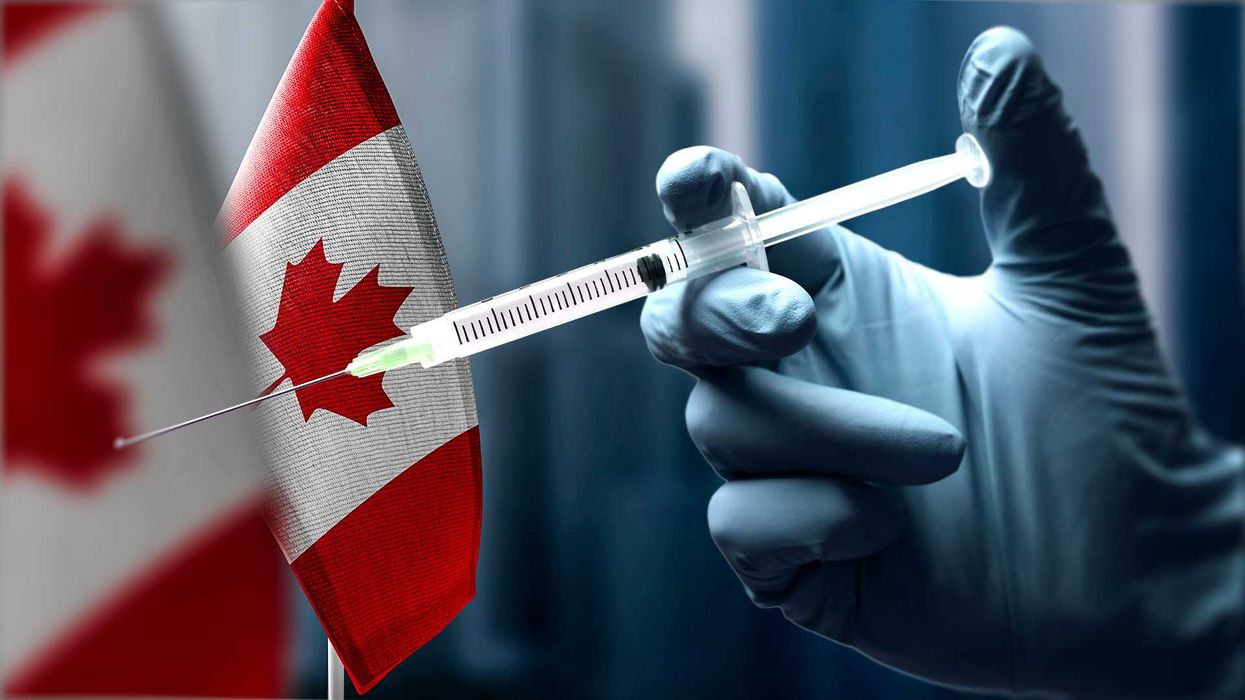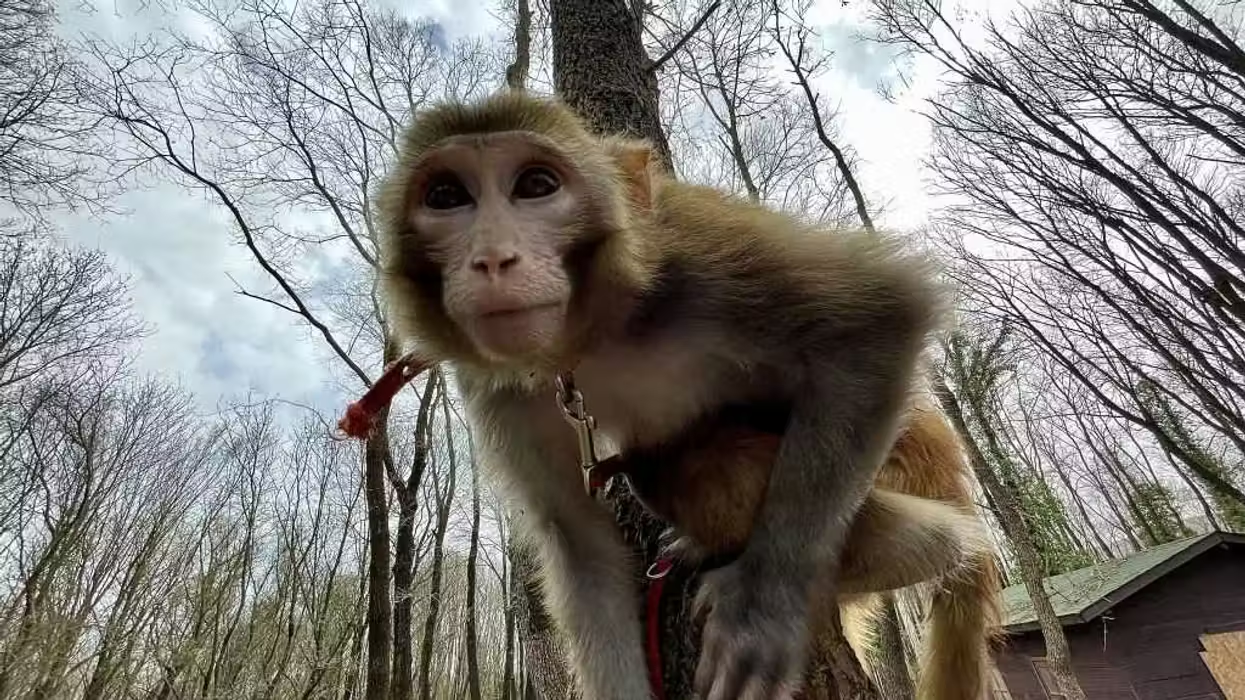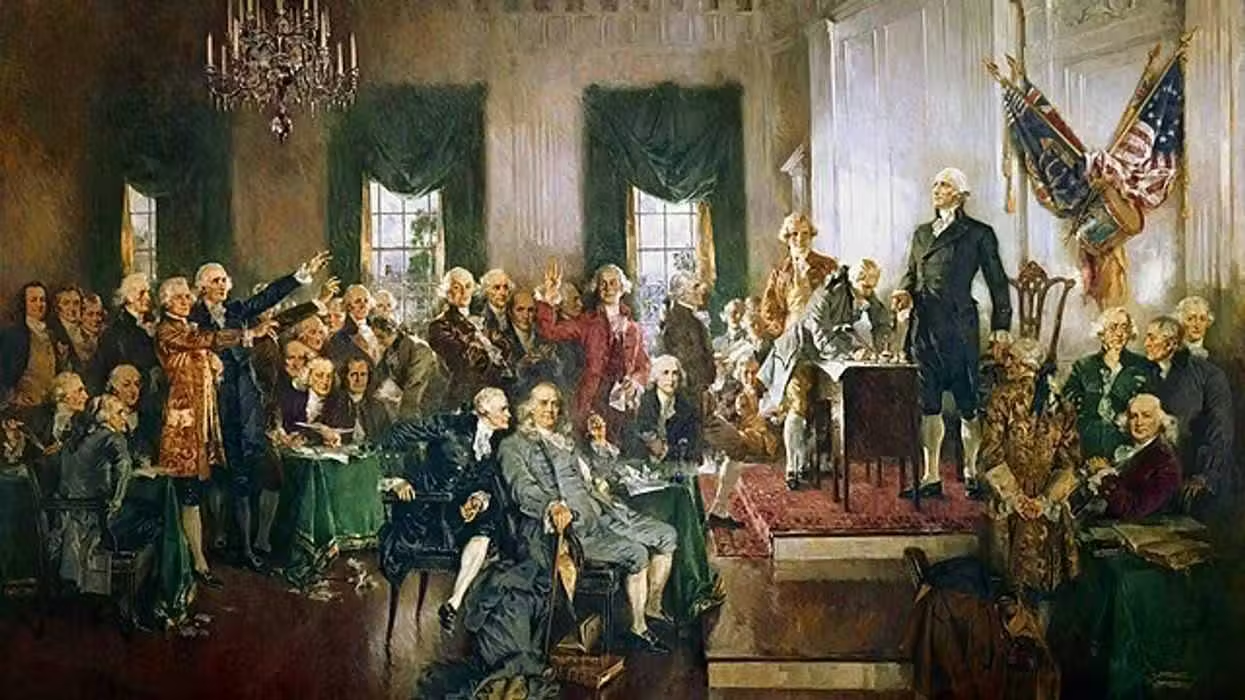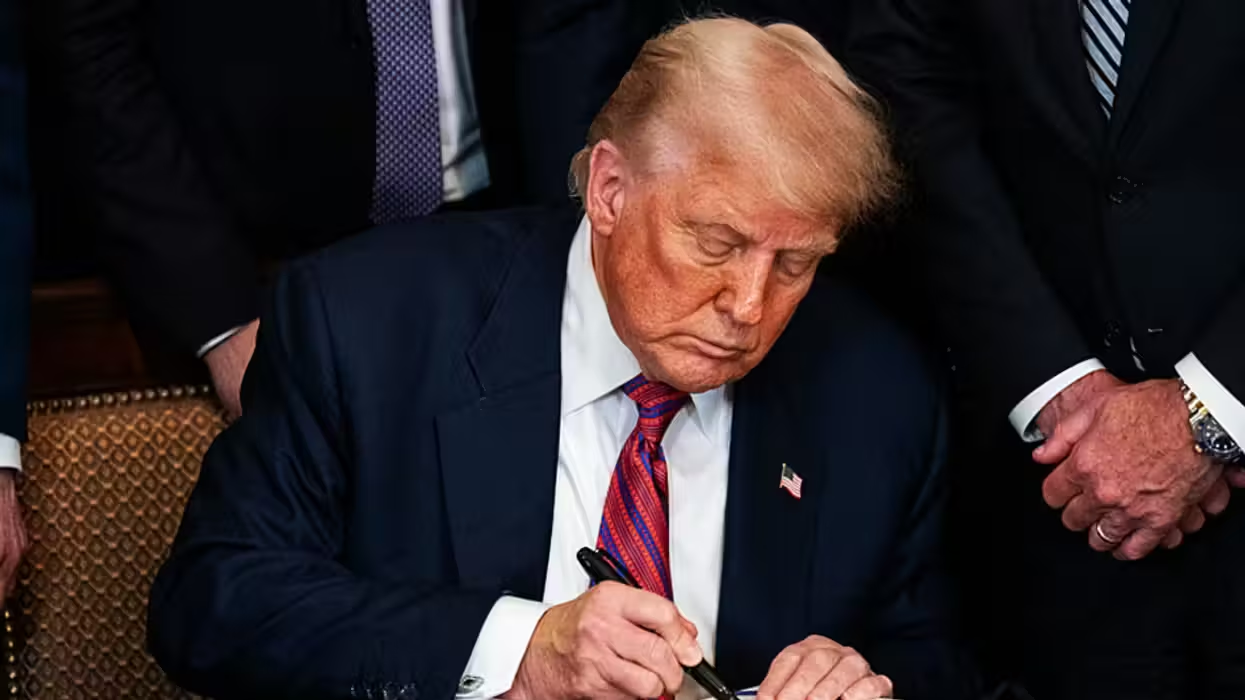© 2025 Blaze Media LLC. All rights reserved.
NEW YORK (AP) — MSNBC says Keith Olbermann will be back on the air Tuesday, ending his suspension for violating NBC's rules against making political donations.
MSNBC's chief executive Phil Griffin said late Sunday that after several days of deliberation, he had determined that two days off the air was "an appropriate punishment for his violation of our policy."
The left-leaning cable network's most popular personality acknowledged donating $2,400 apiece to the campaigns of Kentucky Senate candidate Jack Conway and Arizona Reps. Raul Grijalva and Gabrielle Giffords. NBC News prohibits its employees from making political donations unless an exception is granted in advance by the network news president. In this case, Olbermann's bosses didn't know about them until being informed by a reporter.
THIS IS A BREAKING NEWS UPDATE. Check back soon for further information. AP's earlier story is below.
Keith Olbermann's suspension from MSNBC for donating to three Democratic campaigns has made his status a cause for liberals and raised questions about how long-standing rules designed to protect the integrity of news organizations fit in a new era of opinionated programming.
Olbermann was suspended indefinitely without pay Friday for violating NBC News rules about donations. MSNBC wasn't commenting on Olbermann's future Sunday after an online petition calling for his immediate reinstatement, run by the Progressive Change Campaign Committee, exceeded 250,000 signatures.
The left-leaning cable network's most popular personality acknowledged donating $2,400 apiece to the campaigns of Kentucky Senate candidate Jack Conway and Arizona Reps. Raul Grijalva and Gabrielle Giffords. NBC News prohibits its employees from making political donations unless an exception is granted in advance by the network news president. In this case, Olbermann's bosses didn't know about them until being informed by a reporter.
The rules are designed to preserve the appearance of objectivity for news organizations. Cable news networks, most prominently Fox News Channel and MSNBC, have increased their popularity in recent years through prime-time programs that dispense with any notion of impartiality.
"What we've seen in the last five years is the rise of these personalities that eclipse the journalism that these organizations do," said Kelly McBride, ethics group leader at the Poynter Institute journalism think tank.
Many mainstream news organizations take these rules dead seriously. National Public Radio subjected itself to some teasing this fall when it issued a memo forbidding its personnel from attending comic Jon Stewart's rally in Washington last month, but NPR didn't want reporters seen at an event that some people could interpret as political, unless the reporters were covering it.
Olbermann's fans note that he's made no secret of his support for Democrats on his prime-time "Countdown" show. So why should he be suspended for putting his money where his mouth is?
His prime-time MSNBC colleague, Rachel Maddow, said on her show Friday night that Olbermann should be reinstated. Her bosses were told she'd be saying that before going on the air, however.
McBride said she wouldn't be surprised if some news organizations drop these rules in the next few years, or at least carve out exceptions for certain personalities. Fox News seems to have effectively done this. Prime-time host Sean Hannity made a $5,000 donation to Minnesota Republican Rep. Michele Bachmann's PAC this summer; Fox says he's a conservative talk show host, not a journalist. Part-time commentators the network has hired like Karl Rove and Sarah Palin continue their political work while drawing pay from Fox.
"It's getting harder and harder to draw the lines in general," McBride said. "The public doesn't spend a lot of time differentiating between commentators and journalists."
Yet the principle of journalistic independence is more important now than ever, said Bob Steele, director of the Prindle Institute for Ethics at DePauw University in Indiana.
Prime-time opinion hosts are journalists as well as commentators, Steele said. They host news programs, make decisions on what stories to emphasize, what guests to bring on, and what questions are asked, he said.
"There's a huge difference between having a belief and becoming an activist," he said, "and when you contribute to a campaign with your money or your energy, you're an activist."
Donations to some Democratic candidates by a commentator who clearly supports Democrats may seem simple. But why these candidates in these states and not others? What if these candidates get involved in primaries?
In other words, it can get messy.
For NBC News, there's also the risk of having its journalists associated with activist hosts. Olbermann and Maddow are clear in their opinions on MSNBC, but veteran NBC journalist Andrea Mitchell hosts a daytime hour on the network. So do White House reporters Chuck Todd and Savannah Guthrie.
The question of whether MSNBC is an opinion network or news network seemed particularly hard to answer on election night. In the 2008 political season, MSNBC went back and forth between having Olbermann serve as a news anchor or commentator on nights of big political news; on election night this year, Olbermann was one of the hosts. Chris Matthews was an anchor, too, and he put some tough questions to GOP guests like Bachmann. But beyond asking tough questions, he wondered aloud whether Bachmann was under "hypnosis," and some of MSNBC's personalities were heard laughing at their guests' responses.
Some journalists may also get mixed signals when they see corporate overseers active in political campaigns. Fox's parent News Corp. donated $1 million to the Republican Governors Association this summer. Steele noted there's a long tradition of political activism among owners of news organizations in this country.
Beyond the decision on Olbermann's future, some broader thinking on these issues appears in the offing.
"I would really struggle if I were running one of these organizations to figure out where the journalism fits in," McBride said. "It's obvious that journalism still has some role in these organizations, but it's not sure where it figures in anymore."
Want to leave a tip?
We answer to you. Help keep our content free of advertisers and big tech censorship by leaving a tip today.
Want to join the conversation?
Already a subscriber?
more stories
Sign up for the Blaze newsletter
By signing up, you agree to our Privacy Policy and Terms of Use, and agree to receive content that may sometimes include advertisements. You may opt out at any time.
Related Content
© 2025 Blaze Media LLC. All rights reserved.
Get the stories that matter most delivered directly to your inbox.
By signing up, you agree to our Privacy Policy and Terms of Use, and agree to receive content that may sometimes include advertisements. You may opt out at any time.





